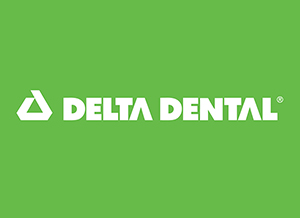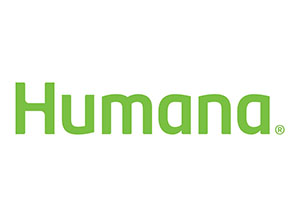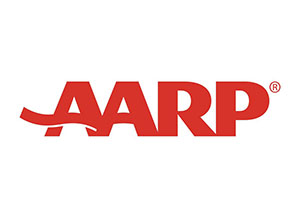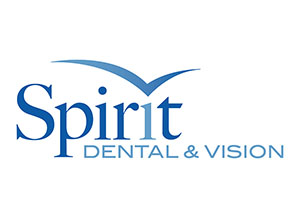A dental plan for seniors is insurance coverage that enables senior citizens to maintain good dental health and oral hygiene and prevent potentially serious problems.
Medicare and Medicaid do not offer dental coverage as one of their baseline services. As a result, the elderly are often left to fend for themselves when it comes to this critical quality of life issue.
Below, we’ve brought together the 10 best dental plans for seniors of 2023.
Rankings
1. Delta Dental

Click here for more information
Delta Dental offers generally outstanding dental coverage for seniors. Their plans are reasonably priced and cover most basic services. Once you get into the more involved dental services, the lower-cost plans start to falter a bit. DD is basically reliable, don’t play games and won’t break most people’s bank.
What we like: We like that Delta Dental offers an array of both PPO and HMO plans. And we like that you have a choice of using out of network dentists.
We also appreciate the company’s online portal that makes finding a network dentist a relative breeze.
Flaws: Maybe the most significant flaw is that covered services can be significantly different from state to state.
2. Solstice Dental Plans

Click here for more information
Solstice provides seniors with a choice of their HMO or PPO dental plans. They provide 100% coverage on most basic services regardless of your plan. And, best of all, they allow you to choose out of network providers. They also offer an HMO plan that lets you pick your own dentist.
What we like: We like that they provide for twice-yearly preventive exams. And that spouses can be included at a reasonable cost.
Also, their HMO plans have the unique advantage of allowing you to use your choice of network dentists.
Flaws: Solstice is not widely available. Although if you’re planning on retiring to Florida, you’re in luck.
3. Humana Dental Insurance

Click here for more information
Many of the 12.5 million veterans in the US age 65 or older are living on fixed incomes. What’s great about Humana Dental Insurance is that they offer a discount to those folks through their Preventive Plus for Veterans program. You will need to commit to the plan for a year to enjoy the benefits, but it’s worth it.
What we like: We like that you can accrue benefits each year with the Humana loyalty program. We like that they offer a dental/vision combo that can save money on both. And those veteran discounts are always good to see.
Flaws: Plans tend to vary from state to state, and the enrollment fees are pretty odious.
4. Aetna Dental Insurance

Click here for more information
Aetna provides a wide array of dental plans for seniors that enable them to keep their teeth in good condition. They also offer several innovative insurance products, including Aetna Medicaid for low-income seniors and discount plans for as little as $10 a month.
What we like: Aetna’s Dental Maintenance Organization (DMO) has no yearly cap or deductibles. It will cost more, but it may well be worth it. The company also offers ‘The Aetna Vital Savings’ dental card that provides significant discounts on
some dental services.
Flaws: While their DMO is deductible-free, some of their more affordable plans are not. Also, Massachusetts residents are out of luck.
5. Guardian Direct

Click here for more information
Guardian Dental is known for their relatively streamlined paper trail, the massive size of their provider network, and their fast turnaround time on claims. Preventive care is typically 100% covered, while Class 2 services like fillings are covered up to 90%.
What we like: With a network of more than 100,000 dentists, there’s one out there for you. Their online cost estimator is also a useful tool that lets you get a ballpark figure of what your preferred coverage will cost.
Flaws: Unfortunately, Guardian has a waiting period for almost all of their dental plans. How long varies by plan.
6. Cigna Dental Plans

Click here for more information
Cigna Dental Plans are, for the most part, reasonably priced. In addition, you won’t pay a deductible on some services, and finding a dentist is easy using their online portal. There, you can also view cumulative scores assigned to dentists by the patients who have used them.
What we like: The fact that there is no annual cap is nice as is the fact that you can sign up your spouse. We like that there are no deductibles on preventive work and that they work with a network of nearly 90,000 dentists.
Flaws: If you wander from the network it’s going to cost you. There’s also a $20 sign up fee for new members.
7. Careington Dental

Click here for more information
The Careington Dental Plan offers access to high-quality dental work at significantly reduced prices. It costs $99 a year to buy into this program. There are no annual spending caps and no waiting period before you can take advantage of your discounts.
What we like: We like the flat $99 annual cost for most people. And the deep discounts it provides on most services. We also appreciate that there are no invasive health checkups to endure, and no pre-authorizations are necessary.
Flaws: Just remember, the $99 doesn’t pay for your coverage. It buys you access to discounted services. You’ll still need to pay the dentist.
8. AARP Dental Plans

Click here for more information
AARP offers three members-only dental plans that are administered by Delta Dental. One of those plans is a prepaid plan with no waiting period. All of their plans provide high-quality services at reasonable prices, with most basic services covered 100%.
What we like: The plans that AARP enables you to buy into are generally high-quality plans. Some will even cover crowns, bridges, dentures, and more. They’re a good choice for those who need more than just the occasional cleaning.
Flaws: There’s a 1-year wait before you can take advantage of the more comprehensive services like dentures.
9. Spirit Dental & Vision

Click here for more information
Spirit Dental & Vision plans have no age restrictions, assure guaranteed acceptance, and provide full coverage on preventive care services. They offer coverage on many restorative services too, as well as things like dentures and implants.
What we like: There’s no waiting for full coverage. The $100 one-time deductible is fairly reasonable. You’re allowed three fully paid cleanings per year. And they offer dental implant coverage.
Flaws: While the deductible is low, monthly costs can be pretty high.
10. Renaissance Dental

Click here for more information
The Renaissance Dental provider network numbers in the hundreds of thousands, so you’re sure to find someone near you. There are deductibles in play, but they are usually fairly modest. And they offer some senior-specific services such as denture repair.
What we like: They have one of the biggest provider networks in the country. They don’t enforce a waiting period for preventive care. And there is no deductible attached to that preventive care. We also appreciate that they let you know about copays ahead of time.
Flaws: The $1,000 yearly benefits cap isn’t going to do you much good if you need some serious dental work.
Why Do Seniors Need Dental Insurance?
There is this misconception that most seniors have piles of cash they’ve been accumulating their whole life that they can draw on in an emergency. Like if they need to have extensive dental work done. But the fact is that’s simply not true (1). A huge percentage of Americans over 65 get 90% of their income from Social Security. This helps explain why the #1 reason seniors avoid getting needed dental work is the cost.
The importance of maintaining good dental health has become blazingly apparent in recent years. With doctors the world over recognizing the connection between healthy teeth and a healthy body (2). With this in mind, a good dental plan can make all the difference in the health of an older individual. It makes it possible for them to get regular checks that help prevent small problems from becoming big ones. It also enables them to deal with things like lost fillings in a timely fashion. The upshot is that, in many ways, dental insurance is, in fact, health insurance for seniors.
How We Ranked
Insurance policies are often extremely complex, and insurance companies less than forthcoming with relevant details about this plan or that. As such, many of the most important features (or non-features) of a dental plan are couched in legalese and buried deep inside the infamous fine print. That said, it’s still possible to get a decent overall picture of a particular plan if you stay focused on some key elements.
We want to know exactly (or as close to exactly as possible) what a particular plan covers and what it doesn’t. And, of the things that are covered, which ones are completely covered, and which are only covered in part. In the case of partial coverage, we wanted to know how much of the procedure was covered.
The size of the deductible (3) is another important component of any dental plan for seniors. After all, if it’s too big, then what’s the point in having the dental plan at all? Also, if the dental plan comes bundled with a medical plan, are there separate deductibles for each? The plans that wound up making our list had, what we determined to be, the most reasonable deductibles.
Another thing we looked for was the annual cap. Most every dental plan has a maximum it will pay out over the course of a year. Exceed that limit, and you pay 100% of any additional costs for the remainder of the year. So the size of the yearly benefits cap is important.
Finally, we looked at things like whether office visits were covered, whether you have the ability to choose your own dentist, and whether or not the policy compels you to use the cheapest available option or whether it covers whatever option you choose.
FAQs
Q: What does a senior dental plan cover?
A: As a general rule senior dental plans focus on prevention as opposed to emergency procedures, implants and the like. Some will cover certain emergencies, such as a broken tooth or extraction. But even if they do, they won’t typically cover 100% of the cost of such procedures. You can also expect that most plans probably won’t cover 100% of the price of a filling. More like 75 or 80%. Likewise, you will probably have to pony up for at least half the cost of a crown or root canal. Dentures are also unlikely to be covered in most cases.
Q: Can you see any dentist you want?
A: It depends on the plan. Some allow you to pick any dentist in their network. Others assign you a dentist, and if you go to someone else, you’ll need to cover the cost yourself. If you currently have a dentist and are happy with him or her and want to keep them, you should ask them which insurance plans they will accept and then see if it’s in your budget. Preferred Provider Organizations – commonly called PPOs – are a type of managed care plan that will provide you with a list of dentists to choose from.
Q: Are there different classifications of dental work?
A: Every insurance company breaks their coverage options down into different classifications. Doing so makes it easier for customers to wrap their heads around what is covered and what is not. And it also makes it easier for the insurance company to keep track of things. When it comes to dental coverage, there are typically four classifications of coverage titled (not surprisingly) Class 1, 2, 3, or 4.
Q: What constitutes Class 1 dental work?
A: Class 1 coverage tends to deal with preventive care. X-rays, cleanings, cursory exams, and the like all qualify as Class 1 services. These are often covered 100% by various dental plans, since good dental upkeep prevents big dental problems.
Q: What is Class 2 dental work?
A: Root canals, fillings, and periodontal work typically fall into Class 2 coverage. This is defined as basic restorative work, and a decent dental plan might cover up to 80% of such work.
Q: What falls under Class 3 dental work?
A: Class 3 coverage is anything that entails major restoration work. Seniors often need this because they have allowed things to slip for years. Class 3 work usually involves things like crowns, bridges, and dentures. Unfortunately, many dental plans for seniors won’t cover any of this work, although there are a few that might cover up to 50%.
Q: What is considered Class 4 dental work?
A: Class 4 entails things like extractions, implants, and the like. You might find a dental plan for seniors that will cover some of the cost for this type of work. But even so, coverage will likely be limited to 50% or less. It’s also likely that there will be a fairly low annual cap involved of like $1,000 or so. But make no mistake, most will not cover Class 4 work at all.
Q: Is dental insurance for seniors worth the money?
A: If your teeth are in basically good shape, then getting dental insurance may well be worth it. That’s because it will cover basic services that will allow the person to keep their teeth in good condition and avoid expensive Class 3 or 4 work. On the other hand, if a person’s teeth are in rough shape, they may actually find it cheaper to just fund repairs out of their own pocket. That’s because of the hefty deductibles that typically accompany restorative work.
Q: Does Medicare Advantage provide dental coverage?
A: With a Medicare Advantage dental plan, you would pay a monthly premium, just as you would with a regular insurance plan. And of course, there would be deductibles involved and limited coverage for certain types of service. It’s advisable to shop around and compare what you might pay for such a plan against what a more straight-up insurance company would charge. Medicare Advantage Plans are not always the best value.
Q: Are there any viable options to dental insurance for seniors?
A: There are. Those options include Medicaid, which, in some states, will cover a limited number of dental procedures and services. There are also numerous clinics around that offer a limited number of reduced cost or free dental services for seniors (4). Although, to be sure, you may have to travel some distance to get to one. Finally, there are things called Federally Qualified Health Centers, or FQHCs (5), that offer a limited number of different dental services on a sliding scale.
Q: What is a dental discount plan?
A: Sometimes referred to as a ‘dental savings plan’, a dental discount plan is another alternative to standard dental insurance. With this type of coverage, the person pays an annual membership fee and is granted access to a network of dentists at what are often significant savings. Sometimes the discount can be as much as 50-60%. You’ll still need to pay out of your pocket each time you see the dentist. But it won’t cost you nearly as much as it would if you went on your own without any kind of insurance.
Q: Do dental plans for seniors cover follow up visits?
A: If you’ve had a major dental procedure chances are you will want or need to go for a follow up visit to ensure everything is okay. Some dental plans for seniors will cover these visits. Some will not. In most cases, it’s a matter of getting what you pay for. If you shell out for a top-of-the-line dental plan, follow ups will probably be covered. If yours is a basic plan, chances are follow ups will not be covered.
Q: If I decide to cancel my dental insurance will it harm my credit score?
A: This is a good question because all kinds of things can have an adverse effect on your credit score. If you never filed a claim, or left part of a balance unpaid, then it is unlikely cancelling your insurance would harm your credit score. Even if you cancelled the policy by not paying the monthly premium. But if you want to cancel your policy, don’t just let it lapse. Call the company and tell them. It will save you potential hassles down the line.
Q: Do dental plans for seniors cover dentures?
A: Some do and some don’t. As we mentioned earlier, dentures are considered a Class 3 type of dental service. As such, there are some dental plans that may provide up to 50% coverage for dentures. Then again, that coverage may be as low as 10 or 20%. Or there may be a max limit in play that will cover something like $1,000 annually. So if you haven’t used the policy for anything prior to getting dentures, it might cover the first $1,000 of the cost. However, some dental plans won’t cover them at all. So always read the fine print.
Related Articles
Long term care insurance
Medicare supplement plans
Vision insurance
Short term health insurance
Recap
Dental plans for seniors are an important component of comprehensive healthcare coverage. Having a good dental plan can help an elderly individual fend off an array of potentially serious health conditions, including type II diabetes, heart disease, oral cancer, pneumonia, and even dementia. So any debate about the cost of such a plan needs to be weighed against these important benefits.
For cpoe.org’s #1 recommended dental plan for seniors, click here.

